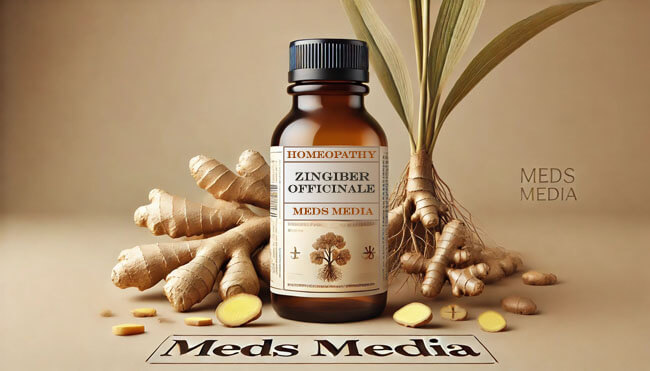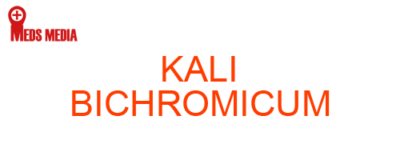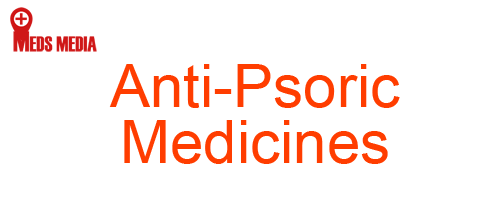
Introduction to Anti-Psoric Medicines
Anti-psoric medicines are a significant group of homeopathic remedies identified by Samuel Hahnemann, the founder of homeopathy. These remedies are specifically designed to cure the psoric miasm, one of the three fundamental chronic miasms in homeopathy. The concept of miasms is central to homeopathic philosophy, representing deep-seated predispositions to certain diseases and conditions. Among them, psora is considered the root cause of most chronic diseases.
The Concept of Psora
Hahnemann introduced the idea of miasms to explain the underlying causes of chronic diseases. Psora, in particular, is described as a latent, long-term condition that manifests in various physical and mental symptoms. Hahnemann believed that psora was responsible for a wide range of ailments, from skin conditions to more profound disturbances like anxiety, depression, and even digestive disorders. According to Hahnemann, curing psora was essential to restoring the patient’s overall health and well-being.
The Role of Anti-Psoric Medicines
Anti-psoric medicines are specifically chosen to treat and eradicate the psoric miasm. These remedies are believed to address the root cause of chronic diseases by working on the deep-seated imbalance within the body. The treatment process with anti-psoric remedies is typically long-term, as it aims to remove the chronic predisposition, thereby preventing the recurrence of symptoms.
Common Anti-Psoric Remedies
Hahnemann identified several remedies as anti-psoric, each with its own unique profile and indications. Some of the most commonly used anti-psoric remedies include:
Alumina: Often used for patients with severe dryness of the mucous membranes and skin. It is indicated for individuals who experience constipation, sluggishness, and confusion.
Ammonium Carb: This remedy is suited for individuals with respiratory issues, particularly those who suffer from shortness of breath, chronic colds, and coughs. It is also used for circulatory problems and weakness.
Ammonium Mur: Known for its action on the musculoskeletal system, Ammonium Mur is indicated for patients with joint pain, sciatica, and conditions that worsen in cold, damp weather.
Sulphur: Often referred to as the “king of anti-psorics,” Sulphur is used for a wide range of conditions, particularly those involving skin issues like itching, burning, and eruptions. It’s also effective for patients who are prone to heat, sweat, and irritability.
Calcarea Carbonica: This remedy is suited for individuals who are overweight, sluggish, and prone to cold and dampness. It’s often prescribed for conditions like chronic fatigue, obesity, and musculoskeletal pain.
Lycopodium: Known for its action on the digestive system, Lycopodium is used for patients who experience bloating, gas, and liver disorders. It’s also beneficial for those with low self-esteem and anxiety.
Graphites: This remedy is particularly effective for treating skin conditions such as eczema, psoriasis, and dermatitis. It’s indicated for patients with thick, dry, and rough skin.
Sepia: Often prescribed for women’s health issues, Sepia is used for conditions like hormonal imbalances, menstrual irregularities, and emotional disturbances.
Silicea: Known for its deep action on chronic conditions, Silicea is used for patients who are weak, chilly, and prone to infections. It’s particularly effective for abscesses, scars, and bone-related issues.
Natrum Muriaticum: This remedy is indicated for patients who are emotionally sensitive, particularly those who suppress their emotions. It’s often used for headaches, migraines, and digestive issues.
Phosphorus: Ideal for tall, thin, and anxious individuals, Phosphorus is used for respiratory conditions, bleeding disorders, and nerve-related issues.
Nitricum Acidum: This remedy is effective for treating conditions with sharp, splinter-like pains, particularly in the mucous membranes. It’s used for ulcers, fissures, and hemorrhoids.
Causticum: Known for its action on the nervous system, Causticum is used for paralysis, muscle weakness, and conditions involving burning pains.
Psorinum: Used as a constitutional remedy, Psorinum is often indicated for individuals with a history of chronic skin conditions, infections, and overall weakness.
Arsenicum Album: This remedy is ideal for patients who are anxious, restless, and fearful. It’s used for digestive issues, respiratory problems, and skin conditions.
Thuja Occidentalis: Commonly used for warts, growths, and skin eruptions, Thuja is also indicated for individuals who are prone to deep-seated chronic infections.
Aurum Metallicum: This remedy is used for deep-seated depression, feelings of worthlessness, and heart conditions. It’s particularly effective for individuals who are high achievers but prone to despair.
Mezereum: Effective for treating skin conditions with severe itching and burning, Mezereum is often used for herpes, eczema, and neuralgia.
Petroleum: This remedy is indicated for conditions that worsen in cold weather, particularly skin conditions like eczema and dermatitis.
Zincum Metallicum: Known for its action on the nervous system, Zincum is used for restless legs, nerve pain, and conditions involving weakness and exhaustion.
Antimonium Crudum: This remedy is suited for individuals who overeat and are prone to digestive issues. It’s also used for skin conditions like warts and calluses.
Magnesia Carbonica: Used for individuals with digestive complaints, particularly those involving acidity and flatulence. It’s also effective for nervousness and menstrual disorders.
Baryta Carbonica: Often prescribed for individuals with developmental delays, Baryta Carbonica is used for chronic tonsillitis, swollen glands, and memory issues.
Carbo Vegetabilis: Known as the “corpse reviver,” Carbo Vegetabilis is used for individuals who are weak, cold, and in need of physical and emotional revival.
Kali Carbonicum: This remedy is indicated for individuals with back pain, respiratory issues, and conditions that are worse in cold weather. It’s also used for heart conditions.
Staphysagria: Often used for emotional suppression and trauma, Staphysagria is indicated for conditions involving suppressed anger, grief, and urogenital issues.
Conium Maculatum: This remedy is used for individuals with glandular swellings, dizziness, and conditions related to aging and stagnation.
Hepar Sulphuris Calcareum: Known for its action on suppurative conditions, Hepar Sulphuris is used for abscesses, boils, and conditions involving sensitivity to cold.
Natrum Sulphuricum: Indicated for conditions involving excess fluid retention, particularly in the liver and kidneys. It’s also used for asthma and depression.
Agaricus Muscarius: This remedy is known for treating nervous system disorders, including tremors, spasms, and conditions that worsen with cold weather.
Anacardium Orientale: Often used for individuals with a split or dual personality, Anacardium is indicated for conditions involving anxiety, depression, and memory issues.
Clematis Erecta: This remedy is effective for treating skin conditions, particularly those involving itching and burning. It’s also used for urogenital complaints.
Cina Maritima: Commonly used for children, Cina is effective for treating worm infestations, irritability, and conditions involving gastrointestinal distress.
Crocus Sativus: This remedy is used for conditions involving hemorrhage, particularly uterine bleeding. It’s also indicated for individuals prone to mood swings.
Digitalis Purpurea: Known for its action on the heart, Digitalis is used for conditions involving a slow, irregular pulse and heart failure.
Dulcamara: Indicated for conditions that worsen in cold and damp weather, Dulcamara is used for respiratory complaints, skin conditions, and urinary issues.
Euphrasia Officinalis: Commonly used for eye conditions, Euphrasia is effective for treating conjunctivitis, hay fever, and conditions involving profuse tearing.
Ferrum Metallicum: This remedy is used for anemia, weakness, and conditions involving flushing and sensitivity to cold. It’s also indicated for individuals who are easily fatigued.
Ignatia Amara: Often used for conditions involving grief, sadness, and emotional stress, Ignatia is effective for treating headaches, insomnia, and digestive issues.
Lachesis Muta: Known for its action on circulatory and menopausal issues, Lachesis is used for hot flashes, varicose veins, and conditions that worsen with sleep.
Magnesia Muriatica: This remedy is indicated for individuals with digestive complaints, particularly liver and gallbladder issues. It’s also used for menstrual irregularities.
Platina: Effective for treating conditions involving pride and superiority, Platina is used for menstrual complaints, neuralgia, and conditions with a sensation of constriction.
Pulsatilla Pratensis: This remedy is commonly used for hormonal imbalances, particularly in women. It’s also effective for conditions involving mood swings, weepiness, and digestive complaints.
Rhus Toxicodendron: Known for its action on the joints and skin, Rhus Toxicodendron is used for conditions involving stiffness, rheumatism, and skin eruptions.
Sarsaparilla: This remedy is used for urinary tract issues, particularly in cases involving painful urination. It’s also effective for skin conditions and joint pain.
Spigelia Anthelmia: Indicated for conditions involving nerve pain, particularly facial neuralgia and headaches. It’s also used for heart conditions.
Stramonium: Known for its action on the nervous system, Stramonium is used for conditions involving fear, delirium, and violent behavior.
Sabadilla: This remedy is used for conditions involving hay fever, allergies, and respiratory issues. It’s also effective for gastrointestinal complaints.
Asarum Europaeum: This remedy is often used for conditions involving nervous system hypersensitivity. It is particularly indicated for patients who experience heightened sensitivity to noise and touch. It’s also beneficial for treating digestive complaints, vertigo, and conditions involving cold extremities.
Colocynthis: Known for its action on the digestive and nervous systems, Colocynthis is effective for treating abdominal colic, neuralgia, and conditions that involve intense, cramping pains. It’s particularly indicated for patients who experience relief from firm pressure or bending double.
Carbo Animalis: This remedy is often used for chronic conditions involving the lymphatic system. It is particularly indicated for patients who experience extreme weakness, glandular swelling, and digestive issues.
Cuprum Metallicum (Cuprum Met.): Known for its action on the nervous system, Cuprum Met. is used for conditions involving muscle cramps, spasms, and convulsions. It is also indicated for cases of severe vomiting and respiratory issues like whooping cough.
Guaiacum: This remedy is commonly used for rheumatic and arthritic conditions, particularly when there is a sensation of stiffness and pain in the joints. It is also effective for conditions involving chronic sore throat and tonsillitis.
Kali Nitricum (Kali Nit.): Known for its action on the respiratory system, Kali Nit. is used for patients suffering from asthma, bronchitis, and other conditions involving difficulty in breathing. It is also indicated for those with cold extremities and restlessness.
Iodum: This remedy is indicated for patients with a high metabolism, often losing weight despite a good appetite. It is used for conditions involving the thyroid gland, respiratory system, and chronic infections.
Nitric Acidum (Nitric Acid): This remedy is effective for treating conditions with sharp, splinter-like pains, particularly in the mucous membranes. It is used for ulcers, fissures, and hemorrhoids.
Mezereum: Effective for treating skin conditions with severe itching and burning, Mezereum is often used for herpes, eczema, and neuralgia.
Muriaticum Acidum (Muriatic Acid): Known for its action on the digestive system, Muriatic Acid is used for patients who are weak, particularly after prolonged illness. It is also indicated for severe exhaustion and conditions involving mouth ulcers.
Natrum Carbonicum (Natrum Carb.): This remedy is often used for patients who are sensitive to the sun, suffer from indigestion, and experience severe headaches. It is also indicated for conditions involving mental exhaustion and depression.
Phosphoricum Acidum (Phos. Acid): This remedy is used for patients suffering from mental and physical exhaustion, particularly after a period of grief or stress. It is also effective for conditions involving hair loss, diarrhea, and weakness.
Stannum Metallicum (Stannum Met.): Known for its action on the respiratory system, Stannum Met. is used for chronic coughs, bronchitis, and tuberculosis. It is also indicated for patients who feel weak, especially in the chest muscles.
Sulphuricum Acidum (Sulphuric Acid): This remedy is effective for conditions involving weakness and trembling, often after excessive alcohol consumption. It is also used for mouth ulcers, gastrointestinal complaints, and conditions involving hemorrhage.
How Anti-Psoric Treatment Works
The treatment with anti-psoric medicines is highly individualized, tailored to the patient’s specific symptoms, constitution, and overall health. The homeopath considers not only the physical symptoms but also the mental and emotional state of the patient. The goal is to remove the underlying psoric miasm, thereby addressing the root cause of chronic ailments.
LEADING ANTI-PSORIC MEDICINES:
ALOES, Alumina, Ambra, Ammon.carb., Anacard, Ant.c., Apis.mel., Arg.nit., Ars. alb., Ars. iod., Avena sativa , Baryta.carb., Bell, Borax, Bryonia, Bufo.r., Calc.ars., CALC.CARB., Caps, Carbo veg., Causticum, Cist.c., Coc.c., Conium.mac., Cup.m., Digit, Dulcamara, Ferr.met., Ferr.phos., Graph, HEP.SULPH, Hypericum, Ignatia, Kali phos., Kali.carb., Lac.c., Lach., Led., LYCO., Mag.c., Mag.m., Mang.acet, Melilotus, Merc Cor, Merc Sol, Mur.ac. Nat.c., Natrum Mur, Nuphar Luteum, Nux Moschata, Nux Vomica, Nyctanthes, Opium, Paraffinum, Petrol, Phos, Platinum, Plumb.met., PSORIN, Pyrog., Rheum, Rhus tox, Robinia, Sabal ser, Sarsap., Secele cor, Selen., Silicea, Spartium Scoparium, Stan.met., Stellaria media, Sulfonal, SULPH., Sulph.ac. Sumbul, Syphilinum, Syzigium Jambo, Tanacetum vulgare, Taraxacum, Tarent, Tartaric acid, Teucrium marum varum., Theridon, Usnea barbata, Veratrum album, Verbascum, Vinca minor, Viola tricolor, ZINC. MET.
Related links for Further Exploration:
Select Your Homeopathic Medicine Dose and Potency
Potency Selection Guide
Relationship of Remedies
Why Meds Media guides are different
We focus on clear, practical explanations of homeopathic and natural health topics so you can understand remedies, symptoms, and lifestyle changes in simple language.
Meds Media is an educational resource only. Always consult a qualified doctor or homeopathic practitioner before starting, stopping, or changing any treatment.
Similar Posts You may also like

LM Potencies in Homeopathy Explained | Insights from the 6th Edition of the Organon
Zincum Picricum Homeopathic Medicine & Personality | Uses, Benefits & Indications
Zincum Phosphoricum Homeopathic Medicine & Personality | Uses, Benefits & Indications
Zincum Iodatum Homeopathic Medicine & Personality | Uses, Benefits & Indications
Zincum Bromatum Homeopathic Medicine & Personality | Uses, Benefits & Indications
Zea Homeopathic Medicine & Personality | Uses, Benefits & Indications
Zincum Aceticum Homeopathic Medicine & Personality | Uses, Benefits & Indications
Zincum Cyanatum Homeopathic Medicine & Personality | Uses, Benefits & Indications
Zincum Muriaticum Homeopathic Medicine & Personality | Uses, Benefits & Indications
Zincum Oxydatum Homeopathic Medicine & Personality | Uses, Benefits & Indications
Zincum Sulphuricum Homeopathic Medicine & Personality | Uses, Benefits & Indications
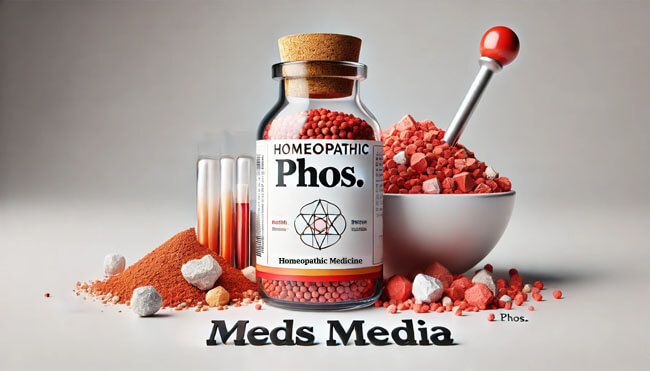
Phosphorus Homeopathic Medicine & Personality | Uses, Benefits & Indications
Causticum Homeopathic Medicine & Personality | Uses, Benefits & Indications

Blood Clot in Eyes: Symptoms, Homeopathic Treatment & Prevention
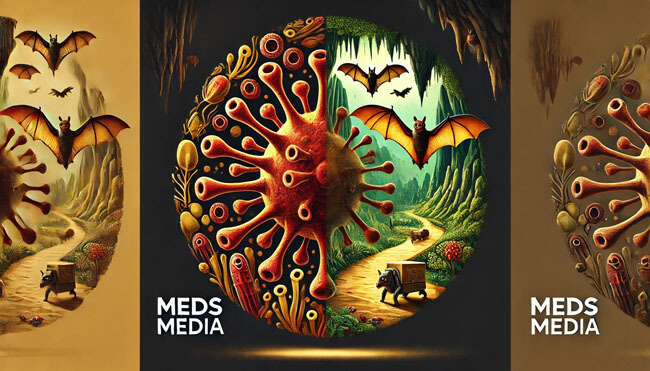
Marburg Virus Disease: Causes, Symptoms & Treatment

Veratrum Viride Homeopathic Medicine & Personality | Uses, Benefits & Indications
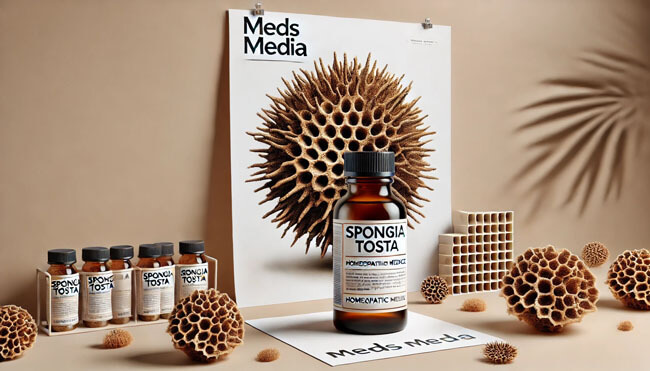
Spongia Tosta Homeopathic Medicine & Personality | Uses, Benefits & Indications
